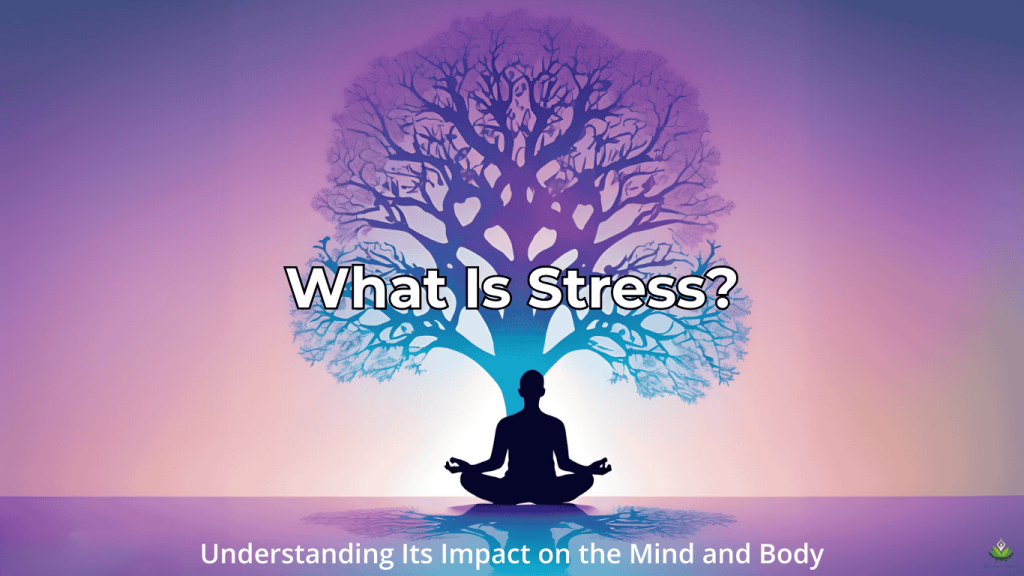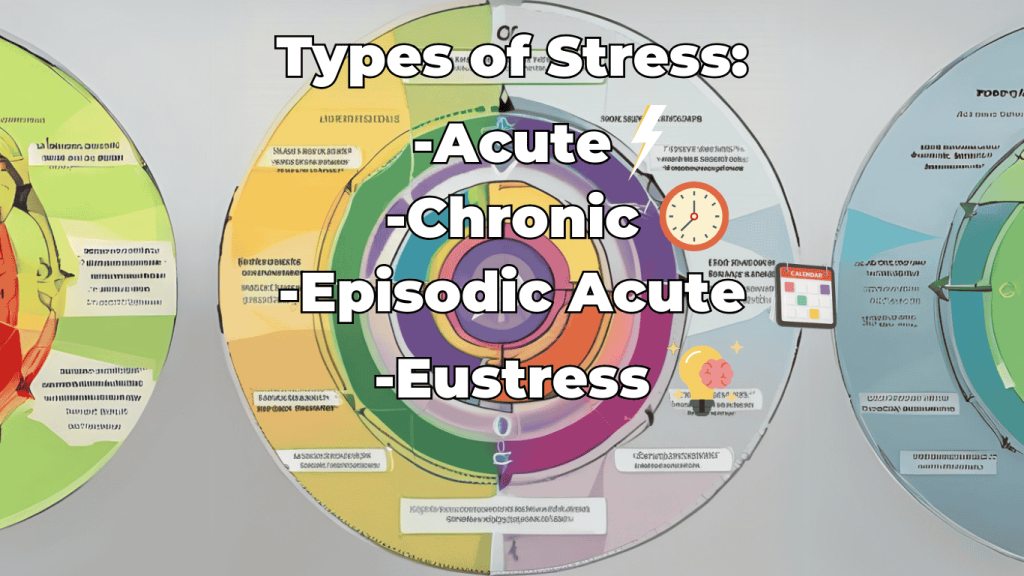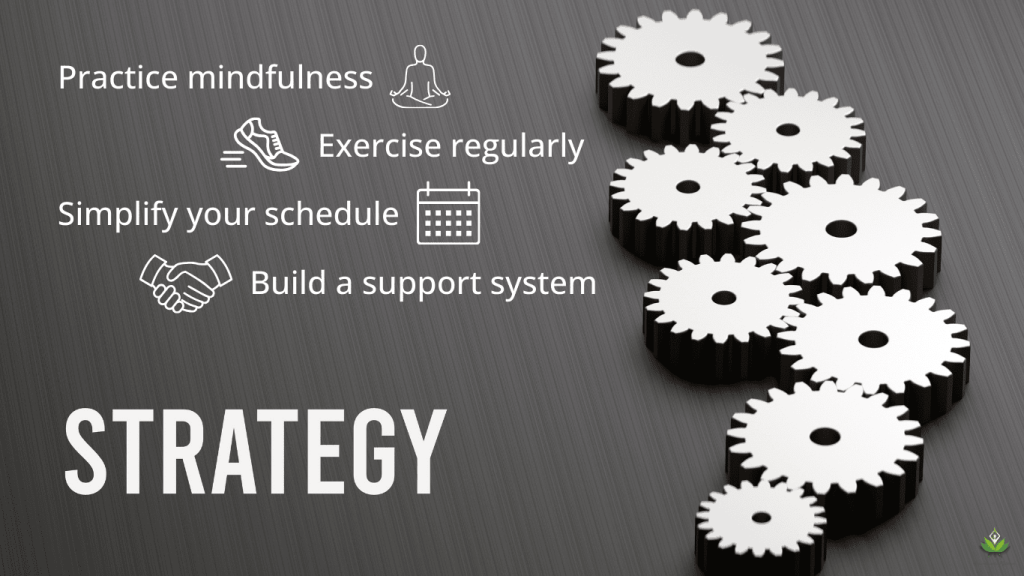Introduction

Stress—just the word seems overwhelming. It’s that tightness in your chest, the endless to-do list, or the constant hum of worry that keeps you awake at night. Stress is universal, touching every one of us at some point. Yet, even as stress is a natural response to the slings and arrows of life, how we understand and manage it can make all the difference.
Have you ever felt so overwhelmed that even small tasks seem monumental? Or wondered why your body reacts the way it does when life gets tough? Stress is more than just an emotional state—it’s a complex physiological process that affects your entire being.
In this blog, we’ll unravel the mysteries of stress: what it is, how it impacts your mind and body, and, most importantly, how you can turn the tide and regain control. Let’s explore together.
What Is Stress?
Stress is your body’s way of responding to demands or challenges. Imagine facing an urgent deadline or being stuck in traffic when you’re already late. Your brain detects a threat (whether real or imagined) and activates your stress response—a built-in system designed to protect you.
When this happens, your adrenal glands release stress hormones like adrenaline and cortisol. These hormones gear your body up to tackle the challenge by increasing your heart rate, sharpening your focus, and redirecting energy to critical systems. It is called the “fight or flight” response.
While this response was survival for our ancestors to escape predators, today’s stressors—emails, bills, and social pressures—are constant and rarely life-threatening. Yet, our bodies react similarly, leading to chronic stress that can harm our health over time.
The Science of Stress: What Happens Inside Your Body
Let’s break it down step by step:
- The Trigger: Your brain identifies a stressor: a looming deadline or an unexpected bill.
- The Alarm: Your hypothalamus signals the adrenal glands to release stress hormones.
- The Reaction: Your heart races, muscles tense, and breathing quickens. Blood flow shifts to essential organs and away from systems like digestion.
- The Calm (Hopefully): Your body should return to a balanced state once the perceived threat passes. But if the stress persists, your body stays on high alert, leading to fatigue, burnout, and health problems.
Types of Stress

Stress isn’t a one-size-fits-all experience. Understanding its types helps you identify your triggers and craft personalized coping strategies.
- Acute Stress
- High-pressure situations generate short-term stress.
- Examples: Avoiding a car accident, delivering a presentation.
- Impact: Energizing in small doses but exhausting if frequent.
- Chronic Stress
- Ongoing difficulties cause continuous stress.
- Examples: Financial struggles and caregiving responsibilities.
- Impact: Increases risk of heart disease, diabetes, and depression.
- Episodic Acute Stress
- A hectic lifestyle causes frequent acute stress.
- Examples: Taking on too many responsibilities.
- Impact: This leads to burnout, high blood pressure, or anxiety disorders.
- Eustress (Positive Stress)
- Motivating stress that pushes you toward growth.
- Examples: Training for a marathon, starting a new job.
- Impact: Boosts performance if not overwhelming.
The Hidden Impacts of Stress
Physical Effects
- Heart Health: Chronic stress raises blood pressure, increasing cardiovascular risks.
- Immune System: Prolonged stress weakens defenses, making you prone to illness.
- Digestive Issues: Stress disrupts the gut-brain connection, causing IBS and indigestion.
- Muscle Tension: Stress manifests physically as tight shoulders or neck pain.
Mental and Emotional Effects
- Memory and Focus: Stress clouds thinking and hampers decision-making.
- Emotional Strain: Amplifies feelings of frustration, sadness, or irritability.
- Mental Health Risks: Prolonged stress contributes to anxiety and depression.
Did You Know?
- Stress links most doctor visits, with estimates showing that 75% to 90% of people seek medical help for issues caused by it.
- Long-term stress can raise the chances of developing heart problems by 40%.
- Stress-related absenteeism costs businesses billions annually.
FAQs About Stress
Can stress ever be good for you?
Yes! Eustress, a type of positive stress, helps you stay motivated to tackle challenges and reach your goals. It pushes you to do your best and excites you about your work. It’s all about balance—too much stress becomes harmful, but a little can push you toward growth.
How do I know if my stress is too much?
If stress starts interfering with your daily life—causing constant fatigue, irritability, or physical symptoms like insomnia—it’s time to seek help.
Are there foods that help reduce stress?
Absolutely! Magnesium-rich foods (spinach, nuts), omega-3s (salmon, flaxseeds), and antioxidants (berries, dark chocolate) can help. Herbal teas like chamomile and peppermint are great for helping you relax and calm your mind.
Stress Management: Practical Strategies That Work

- Mindfulness and Meditation
- Practicing mindfulness keeps you grounded in the present moment.
- Try this: Spend five minutes paying attention to your breathing. Please take a deep breath, hold it for a moment, and breathe slowly.
- Physical Activity
- Exercise releases endorphins, your brain’s natural mood lifters.
- Action Step: Aim for 30 minutes of movement daily—yoga, walking, or dancing.
- Time Management
- Feeling overwhelmed? Simplify your schedule.
- Tip: Write down tasks and prioritize. Break big projects into smaller steps.
- Build Your Support System
- Talking about stress helps lighten the load.
- Actionable Tip: Set a weekly check-in with a friend or mentor.
- Prioritize Sleep
- Good sleep is essential for the recovery after stress.
- Wind-down Routine: No screens, sip herbal tea, and read something non-arousing before retiring.
- Get Professional Help
- If stress has started to feel overwhelmingly unmanageable, therapy might be an option. Professionals can offer more personalized coping strategies.
Actual Life Application: When You Turn Stress into Strength
Biljana is a mother who has to balance innumerable tasks and working full-time. She started only with minor changes: 10-minute journaling every morning and spending minutes walking with a friend three times a week. It is just these kinds of tiny changes that nailed her down and helped her combat the stressors in everyday life that otherwise may well have rapidly turned overwhelming.
Conclusion: Taking Back Your Calm
Stress might be inevitable, but it doesn’t have to overpower your life. You can put yourself in a healthier sphere of living by understanding the nuances of the effects of stress and adopting proactive measures like mindfulness, simplification, and more connection with others.
Start small. Take a deep breath today, call a person you trust, or find just a few moments of peace. Each step counts. After all, you are entitled to a life where you thrive and not merely survive.